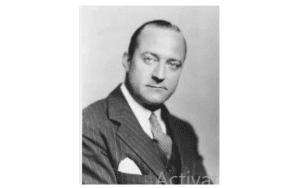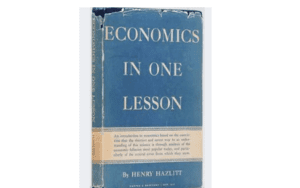Economics In One Lesson; An Introduction To The Henry Hazlitt’s Books, And Education
 Henry Hazlitt,
Henry Hazlitt,
These all are the Henry Hazlitt’s Books. How did he become a great journalist and writer without any bachelor’s or master’s degree? It is essential to know about their struggle and also to know about their education and educational concept.
Henry Hazlitt was not a professor of economics. Still, he became a well-known, self-taught economist despite his poor background. Nonetheless, he was a titan in the field of economics education. More laypeople were introduced to economics and the market through his famous writings (than were ever exposed to economics by the vast majority of tenured econ professors.
Type II Diabetics’ Heart Disease Risk Scores Can Be Predicted Using a Genetic Map
Henry Hazlitt Did Not Have Advanced Degrees
Hazlitt did not have advanced degrees in economics or even a bachelor’s. But he was highly regarded as an economist and a great one by his contemporaries and future generations. H.L. Mencken, a legendary journalist, called Hazlitt “one of the few economists in history who could really write.” To top it all off, Hazlitt was called “the economic conscience of America” by the legendary economist Ludwig von Mises.
His understanding of the market was superior to most economists before and after Hazlitt’s time. For instance, he penned a book that systematically demolished the economics of John Maynard Keynes (the industry hero at the time), exposing Keynes’s “magnum opus” as a ponderous tissue of fallacies.
Adverse Effects of Air Pollution on Young and Infants
What paths did Henry Hazlitt take outside academia to become a well-known economist and economics professor?
Institutions of Market Education
Earlier in his life, Hazlitt aspired to attend an elite university and pursue an academic career. He said his intellectual awakening occurred during his senior year of high school at his 70th birthday party. I began to consider philosophical and psychological questions. Both Herbert Spencer and William James are like gods to me.
At first, I intended to follow in William James’s footsteps by attending Harvard, where I would study psychology and eventually teach the subject while dabbling in philosophical writing.
Unfortunately, a lack of money meant that this could only happen sometimes. For this reason, I settled for attending the New York City colleges, which have no tuition fee. But after only a few months, I knew I had to leave college and find a job to help my mom pay the bills.
The Ability to Make Money…4 Lessons by My Honorable Guest
Henry Hazlitt Was Raised With Strict Rules.
He was raised with strict rules because of the early deaths of his biological father and his stepfather. Henry Hazlitt had to work his way up from the bottom, doing jobs far beneath his abilities. However, he did not let his pride prevent him from taking advantage of any and all opportunities to advance his career.
The job market had little use for a recent high school grad without work experience. “In her biography of Hazlitt, Bettina Bien Greaves said. Henry’s skillset at the time only extended to being an office boy in exchange for $5 per Week. After only two days on the job, he was let go. He was unfazed by this, though. Just like that, he’d left that job and found another one.
This was possible because the government had yet to intervene to remove the lowest-paying jobs.
You Should Aim For Success Rather Than Wealth.
Henry Worked Several Jobs That Paid $5 Per Week.


“There were no legal obstacles to hiring and firing back then on minimum wage to which an employer was required to adhere, including not having to withhold or pay any income, social security, or unemployment taxes. and no restrictions on hours or working conditions.
” In principle, any prospective employer could hire any worker looking for a job. If things did not work out, the company could terminate the employee’s employment without repercussions. An alternative is for the worker to quit, knowing he will quickly find another job.
Henry worked several jobs that paid $5 per Week. When he discovered that secretaries made $15 per Week, he made it his mission to become proficient in shorthand and typing. He enrolled in secretarial school and spent several weeks there learning the trade. His newfound abilities would allow him to earn $10 to $12 weekly.
Here Are Three for Developing Self-Control and Ensuring Your Success In the Long Run
Learning the Ropes at The Journal
Hazlitt reflected on his life and said, “However, I hadn’t given up the idea of being a writer. I figured working for a newspaper would be the best place to express that identity while making a living. As a result, he used his secretarial experience to secure a position as a stenographer at The Wall Street Journal.
Greaves said, “The Journal back then was substantially smaller andIt’s interesting to think about how much Wall Street has changed over the years. The news reports from the past seem to indicate that it was a much smaller place back then. Editorials for The Journal were dictated to Hazlitt on the typewriter, and reporters phoned in their stories to him. Training on the job helped him pick up the ropes over time.
Although Hazlitt had yet to achieve his goal of becoming a writer, he was well on his way to doing so, thanks to the encouragement and guidance of established authors. Over time, his perseverance paid off, and he was allowed to “cut his teeth” as a writer.
To paraphrase what Greaves said, “The Journal back then had a ‘By-the-Way’ column, composed of brief quips about current events. Employees were encouraged to participate anonymously.
The author submitted a carbon copy of his submission if his entry was used in the publication (at a rate of 75 cents per entry). Henry’s talent for writing led him to become a regular contributor, and the money he made from his witty “By-the-Way” paragraphs eventually more than doubled his previous income.
Cancer And Diabetes Are Associated. See How Below!
Getting Ahead Through Studying By Yourself
Hazlitt kept up his own independent study in addition to his formal education. Greaves described Henry Hazlitt: “He was energetic, ambitious, and industrious. This man needed more than just on-the-job instruction. He resolved to make up for the time he had to spend away from his college studies. This prompted him to devise his own reading plan.
After learning about Shakespeare and the Marlowe debate, he began to read about the latter. Reading Herbert Spencer enlightened him on the subject of evolution and the function of the state. Because of how much he read, he eventually received a well-rounded education in the liberal arts.
At first, his coursework had little to do with his career as a financial journalist. I was expected to have some understanding of economics and business, as Hazlitt put it. Business and finance were an area in which I had no background or interest.
It was as if my mind had wandered off to the clouds, where I could think about philosophical matters at length. In the evenings, when I wasn’t dancing or competing in dance competitions, I was secretly penning a book with the lofty subtitle “Thinking as a Science.”
Packed With Meat and Cheese, Pasta Salad
Henry Hazlitt’s and Economics Studies


However, Hazlitt’s two worlds eventually collided: I started reading the usual economic textbooks of the era to keep my work, so I could learn more about business and finance.
“Then I realized that economics necessitated the same level of hard work, nuance, and precision as the most baffling issues in philosophy, psychology, or physics. It wasn’t until much later that I found a fantastic book while browsing the shelves of my local library.
The Common Sense of Political Economy was written by Philip H. Wick Steed. As a result, I gained a newfound appreciation for economics and a glimpse of the fact — later made much more explicit by Ludwig von Mises — The field of economics is a vast and all-encompassing discipline that revolves around human behavior and decision-making.
It explores the intricate interactions between individuals, institutions, and markets, analyzing how they allocate resources and create value. From the micro-level of individual transactions to the macro-level of national and international policies, economics provides insights into the workings of our society. The nuances of interpersonal connections that play a role in their establishment.
Henry Hazlitt wrote down many books, but “Economics in one lesson,” which is an introduction to economics, is a very famous book among his books, economics in One Lesson is ranked in the top position in the list of Henry Hazlitt’s books.
An Introduction to Education Concept of Henry Hazlitt, part 1
Henry Hazlitt’s Books list
ECONOMICS IN ONE LESSON
THE FAILURE OF NEW ECONOMICS
THINKING AS A SCIENCE
TIME WILL RUN BACK
THE WAY TO WILLPOWER
THE MAN vs. WELFARE STATE
CONQUEST OF POVERTY
WHAT YOU SHOULD KNOW ABOUT INFLATION
THE INFLATION CRISIS AND HOW TO RESOLVE IT
THE WISDOM OF HENRY HAZLITT
WILL DOLLAR SAVE THE WORLD
INSTEAD OF DICTATORSHIP
INCOME WITHOUT WORK
Promoting Parental Involvement: A #BTColumn
Back To Henry Education
The library was central to Henry Hazlitt’s independent research, and he made many such discoveries there. “independent research conducted by Zlitt, during which he uncovered many relevant facts. “There is no activity that can compare to the experience of walking along a library shelf filled with books on the topic that has piqued your interest and reading a few of them.
” He reflected. As a side note, I think this is how I spent some of the happiest times of my own childhood, if I may say so. When the library closed for the night. I would leave in a state of mental intoxication, my mind racing with the new information and concepts I had just encountered.
Five Bedtime Routines; That Parents Will Love As Much As Their Children
Public Library


Good Will Hunting is a film starring Matt Damon as Will Hunting, a self-taught genius played by the actor.
He told an arrogant but uninspired Harvard student who had tried to degrade his friend that the individual had squandered $150,000 on an education he could have obtained for $1.50 in late fees at the public library. Will Hunting said that the individual had wasted his money on an education that he could have gotten for $1.50 at the public library.
After some time had passed, Hazlitt finished Thinking as a Science and began the process of getting it published.
Hazlitt realized he was self-sufficient and unnecessary to attend Harvard.
Greaves said, “he sent the book to five publishers, got five rejections, and gave up.” Then, a friend from high school strongly suggested that he resend it. And this time, the prestigious publishing house of E. P. Dutton & Co. Hazlitt’s enthusiasm and diligence paid off once again.
In the same year, Hazlitt resigned from his work at The Journal to pursue a post. as a correspondent for The New York Evening Post covering the Wall Street beat. Hazlitt parted ways with The Journal to take a position .as a Wall Street correspondent for The New York Evening Post.
With These 14 Decoration Ideas, You Can Make The Most Out of Even The Smallest Living Area.
Henry Hazlitt, a former college dropout who became a professional writer and scholar by the time he was 22 years old, had struggled financially throughout his life. Value creation, an apprenticeship, independent study, regular writing, and perseverance helped him realize his vision.
An Eternity Spent Studying and Instructing


But Henry Hazlitt didn’t stop learning after that. He never stopped learning and always found ways to incorporate his academic pursuits into his work as financial editor of the New York Evening Mail in the 1920s.
Hazlitt developed a close relationship with economist Benjamin Anderson, coming to see him weekly for lessons and advice. It was enlightening to read his masterpiece. The Value of Money is revered as a classic of American economics and monetary theory worldwide. Conversations with him, whose mind is as sharp as a knife, greatly stimulated my imagination.
Here Are Tips From a Therapist on How to Stop People-Pleasing Behavior
Hazlitt Praised Mises’s Work,
Anderson’s book was about how Hazlitt was introduced to Ludwig von Mises.
Hazlitt “reviewed Mises’ Socialism in The New York Times years later,” as described by Greaves.
On January 9, 1938, he wrote a review for the Book Review Section of the newspaper…” Hazlitt praised Mises’s work, saying, “he has written an economic classic in our time” and calling it “the most devastating analysis of socialism yet penned.” Greaves said, “Mises was then living and teaching in Switzerland.
Cancer And Diabetes Are Associated. See How Below!
Henry and Mises’s Friendship
This review would serve to connect the two great men. Hazlitt was kind enough to mail a copy of his review to the author, and the two men had a brief response. After deciding to flee to America two years later, when World War II was well underway, Mises called Hazlitt, one of his few contacts here.
Hazlitt considered Mises a “classic,” a writer from another era. Hazlitt recalled that receiving a phone call from Mises was almost as shocking as hearing from a legendary economist like Adam Smith or John Stuart Mill due to their mutual admiration and generosity.
Hazlitt and Mises became close friends and benefactors. Likewise, Hazlitt counted Mises as a mentor and instructor. Hazlitt said at his 70th birthday party, “The thought of any other single person in the last 25 years has had more influence on me than the thought of Ludwig von Mises.”
Traditional Meat Pie With Lamb, Sydney Especial;
Hazlitt worked for The New York Times.
Hazlitt worked for The New York Times between 1934 and 1946. During that time, he was responsible for “most of the financial and economic editorials,” as he recalled. Applying, refining, and disseminating the economic knowledge he had acquired.
He used that influential platform to debunk the myths of the New Deal and Keynesianism.
Following this epiphany, he set out to write a book that would protect its readers from committing the economic fallacy of overlooking secondary consequences, which is the root of many other, more specific errors.
He was given every other day off from the Times for three months to write it. As a result, Economics in One Lesson (1946) was reported, which is now considered a classic and has sold millions of copies, converting many people to free-market economics and being hailed as a masterpiece of economic education.
King of Online Retail: Jeff Bezos Jeffrey P. Bezos, Founder and CEO of Amazon.com
ECONOMICS IN ONE LESSON; A Great Writer And Journalist
The book of Henry Hazlitt’s ECONOMICS IN ONE LESSON; is still very famous. He was a great journalist and writer. The author of Thinking Outside the Box and Beyond the Ivory Tower could not afford a degree in academia.
That turned out to be a boon, not just for him but for everyone in the world. He needed to construct his own “syllabus” (consisting of works by Wick Steed, Anderson, and Mises), seek out his own “faculty” (individuals such as Anderson and Mises), and devise his own “assignments” (consisting of his own published works) to receive an education that was tailored to his own interests.
The ultimate product was incomparably superior in every respect. Because it was sensible, plain, straightforward, and logical, Hazlitt’s economics writing (and, by extension, his economic thinking) for “real-world” audiences was very popular. This was because Hazlitt was writing for such audiences.
Here Are the Top 10 Winter Fashion Trends You Can’t Ignore
Should Henry Hazlitt’s approach to schooling be followed?


Hazlitt was an exceptional mind, and his way of life was unique. However, I believe this was not an extraordinary case of chance. Academic institutions are heavily propagandized and subsidized by the government, so most bright young people with an interest and aptitude in economics end up there. This is not because universities are good places to learn economics or to become economics teachers.
Arjun Rampal’s Birthday; Turn Fifty Years Old
Henry Hazlitt’s Educational Approach
A lot of time and money could be saved, better working and communication habits could be developed, and more actual value could be created for humanity if more aspiring young economists took Henry Hazlitt’s educational approach.
Which is centered on self-directed study, apprenticeship, and “real-world” writing (as well as other forms of content creation) for popular audiences. The general public’s economic knowledge would consequently improve. And the results would be increased economic liberty and general human prosperity.
Now we begin the Countdown! Outside the Film’s Premiere, Shah Rukh Khan Gives Away the Film’s
Foundation for Economic Education
I was inspired by Henry Hazlitt’s education and career to create an apprenticeship program at the Foundation for Economic Education (which Hazlitt himself co-founded) called the Henry Hazlitt Project for Educational Journalism (“the Hazlitt Project,” for short).
The following articles expand on the themes of liberty education and advocacy. Bastiat on Creativity:
Expert advice from two of Bastiat’s most significant disciples For a good writer, it is necessary to follow these five rules from one of the best:
the legendary Mr. Henry Hazlitt Freedom requires an introspective uprising;
we must first straighten out our mental attics.
For more details click here,




